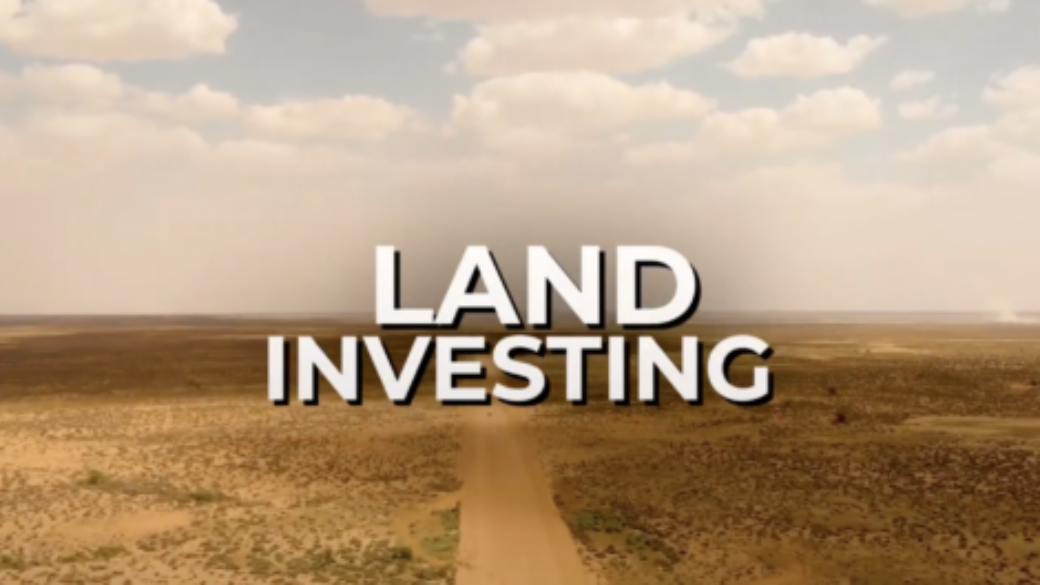How to Sell Land Without a Realtor
Many landowners are trying to sell their property in today’s housing market without the help of a real estate professional. This strategy can provide sellers more control over the sales process. It can also save them a substantial amount of money on commission costs. But how to sell land without a realtor?
For those who are unfamiliar with the real estate market, selling land without a realtor can be a challenging task.
In this detailed article, we’ll go through all the stages involved in selling land without a realtor. Ample examples and useful advice to make the process progress more effective and quick will be provided.
Determine a Fair Market Price
Research Comparable Properties
If you’re looking for how to sell land without a realtor, you must put yourself in the realtors shoes. Investigating comparable properties in the region is the first step in deciding what the market price of your land is.
Find property pieces that are comparable to one another in terms of size, location, and amenities. Use your laptop to look for previously sold or newly listed homes that are similar to your land on websites for real estate, such as Zillow and Ownerly.
If you’re selling a 10-acre piece of land in a rural region, for instance, search the area for other 10-acre pieces with comparable topography and access to utilities.
Assess Unique Features and Value-Adding Factors
The unique attributes of your land, such as beachfront access, panoramic views and mineral rights must be considered when calculating a fair market price. These features can have a major influence on the value of your property.
A piece of property with a beautiful overlook, for instance, can be worth more than a similar piece of land without these attributes. When determining the price of your land, be sure to take these value-adding factors into consideration.
Consult with Local Property Appraisers and Tax Assessors
To learn more about the worth of your land, contact tax assessors and local property appraisers in addition to investigating comparable properties and evaluating special characteristics.
These experts may offer insightful information on current market circumstances, recent sales information, and property appraisals. They could also provide advice on possible land enhancements that could raise the value of your property.
Calculate an Accurate Asking Price
You should have a clear idea of the worth of your land after investigating comparable properties, evaluating special features, and speaking with tax assessors and local property appraisers. Calculate a precise asking price for your home using the information provided here.
Remember that if you price your land too high, it can turn away prospective buyers. If you price it too cheap, you might make less money than you should. Opt for the balance between drawing customers and increasing your return on investment.
Prepare Your Land for Sale
These are the recommended steps to take when preparing your land for sale.
Address Potential Issues
Address any problems that could turn away potential purchasers before putting your land up for sale. This covers neglected landscaping, accessibility issues, or environmental issues.
For instance, to make your property more desirable and accessible to possible purchasers, try removing some of the underbrush if it is severely forested. Work with neighbors or local or authorities to locate a road access option. This will increase the value of your property.
Clearly Mark Property Lines
When getting your land ready for sale, it’s essential to make sure that property borders are properly designated. To indicate the borders of your land, use fencing or stakes.
If you haven’t performed a survey in a while, think about hiring an expert to conduct a new survey. This would assist preventing any conflicts or misunderstandings regarding the property’s borders as well as give buyers correct information.
Disclose Easements and Encroachments
Be ready to tell prospective purchasers about any encroachments or easements that exist on your property. Easements, such as utility or access easements may impact the ways in which a buyer can develop or utilize the land.
A buyer’s choice may also be influenced by encroachments, such as a neighbor’s fence or building that overflows onto your land. Being open and honest about these matters might aid in avoiding future misunderstandings and possible legal conflicts.
Gather Relevant Documentation
Collect the necessary supporting papers that will be essential to communicate with interested parties. Documents like zoning data, property deeds, environmental studies, or licenses for any land developments may fall under this category.
Making these documents accessible shows transparency and aids prospective buyers in making educated judgments regarding your home.
Organize this information clearly and be prepared to address any queries potential customers may have regarding the data presented.
Market Your Property
Create a Compelling Listing
When looking to sell land without a realtor, you must make your listing a appealing to potential buyers. Write a thorough description of your property in the beginning, emphasizing its special characteristics, setting, and potential uses.
Include details on zoning, utilities and any land enhancements that have been done. A professionally written listing will aid in drawing in prospective buyers and give them a clear idea of what your home has to offer.
Take High-Quality Photos
The most significant features of your property, such as any views, natural features, or cleared areas, must be emphasized in high-quality images. In order to offer prospective purchasers an improved understanding of the layout and geography of your land, think about using a drone or employing a professional photographer to take aerial pictures of it.
To create a thorough visual portrayal of your land remember to take pictures at various times of day and from different points of view.
Advertise on Multiple Platforms
It’s time to start advertising your home on multiple sites after you have your listing documents ready. List your property on well-known real estate websites that specialize in selling land, including LandWatch, Zillow, and Lands of America.
To reach a broader audience, consider using social media sites like Instagram and Facebook. You can improve the likelihood that potential buyers will notice your home by promoting on several different channels.
Utilize Local Advertising and Word-of-Mouth
When marketing your property, don’t undervalue the influence of word-of-mouth and local advertising. To reach prospective buyers in your area, place advertisements in neighborhood publications and on noticeboards.
In addition, let people know that your land is for sale by telling them and asking them to tell others. By networking in your neighborhood, you may attract buyers who would not have discovered your home through internet advertising.
Screen Potential Buyers and Negotiate Offers
Screen Potential Buyers
It’s crucial to check potential purchasers as soon as you start getting queries about your property to ensure they are serious and financially capable. This may entail inquiring about their plans for the property, their prior land acquisitions, and whether they have received financial pre-approval.
Screening potential buyers carefully might save you time and effort by focusing on those who are genuinely interested in and capable of purchasing your land.
Establish Your Bottom Line
It’s essential to comprehend your bottom line before starting any negotiations. This refers to the lowest price you can accept for your home, taking into variables including the state of the market, the expense of maintenance, and any debts associated with the property. Knowing your negotiating approach can assist you avoid accepting an offer that falls short of your standards.
Negotiate Offers and Terms of Sale
Once you have located prospective buyers, be ready to negotiate prices and go over the terms of the sale. Be open to make compromises during negotiations when it comes to issues like closing fees or the duration of the escrow period.
Consider arguing against the buyer’s offer with a higher price or requesting concessions, such as the buyer paying a percentage of the closing fees, if, for instance, the buyer offers $150,000 for your land but you intended to sell for $175,000 instead.
Explore Financing Options
Be willing to discuss various financing possibilities with prospective buyers as this may increase their interest in your home. For individuals who might not be eligible for a typical loan, seller financing, in which you provide the buyer a loan and they make payments straight to you, might be an appealing possibility.
As an alternative, a land contract, in which the buyer pays the seller until the property is paid off, may be a good choice. You might be able to attract more potential buyers and raise your chances of a sale by providing flexible financing choices.
Complete the Sale with Legal Documentation and Closing
Draft and Sign a Purchase Agreement
After the conditions of the sale have been agreed upon by both you and the buyer, it is time to finish the deal with legal paperwork. To do this, a purchase agreement must be written and signed, outlining the terms of the deal. These include the purchase price, any conditions, and the closing date.
It is strongly advised to speak with a real estate lawyer or a title business to make sure the right paperwork is created and signed. Depending on your area’s regulations, they can assist you in creating a land contract or a normal purchase agreement.
Open Escrow and Conduct a Title Search
The next step after signing the purchase agreement is to initiate escrow with an attorney or a title company. To facilitate the transfer of money and property, they will serve as a neutral third party.
To make sure there are no liens or other encumbrances on the property that would interfere with the transfer of ownership, the escrow agent will do a title search. This is necessary to protect the buyer and the seller from any potential legal issues related to the property’s title.
Prepare Closing Documents and Coordinate the Closing Process
The escrow agent will organize the closing procedure and prepare all essential documents, including the deed and closing statements. This includes setting a closing date, ensuring that both parties have signed all appropriate papers. If necessary, confirming that the buyer has obtained financing is another step.
Finalize the Transaction and Transfer Ownership
Both the seller and the buyer will sign the necessary paperwork on closing day. Then, the buyer gives the escrow agency their money. The escrow agent will register the deed transferring title of the land to the buyer once the monies have been received and all paperwork is in place.
If you’re willing to dedicate the time and effort, selling land without a realtor may be a gratifying and inexpensive experience. You’ll be well on your way to selling your land and maximizing your income if you follow the aforementioned instructions.
Conclusion – How to Sell Land Without a Realtor
Landowners who are willing to put the time and effort, selling land without a realtor is a realistic option.
You can successfully sell your land and maximize the money earned by following the instructions provided in this guide. These include investigating market prices, preparing your land for sale, effectively marketing your property, reviewing potential buyers, negotiating offers, and completing the transaction with the necessary legal paperwork.
Even though you’ll need to put in more work, many landowners find that the potential cost savings and sense of success make it worth.
When necessary, don’t be hesitant to get expert counsel from title firms or real estate attorneys. Their knowledge may help ensure that the transaction goes smoothly and your interests are safeguarded through the entire process.


